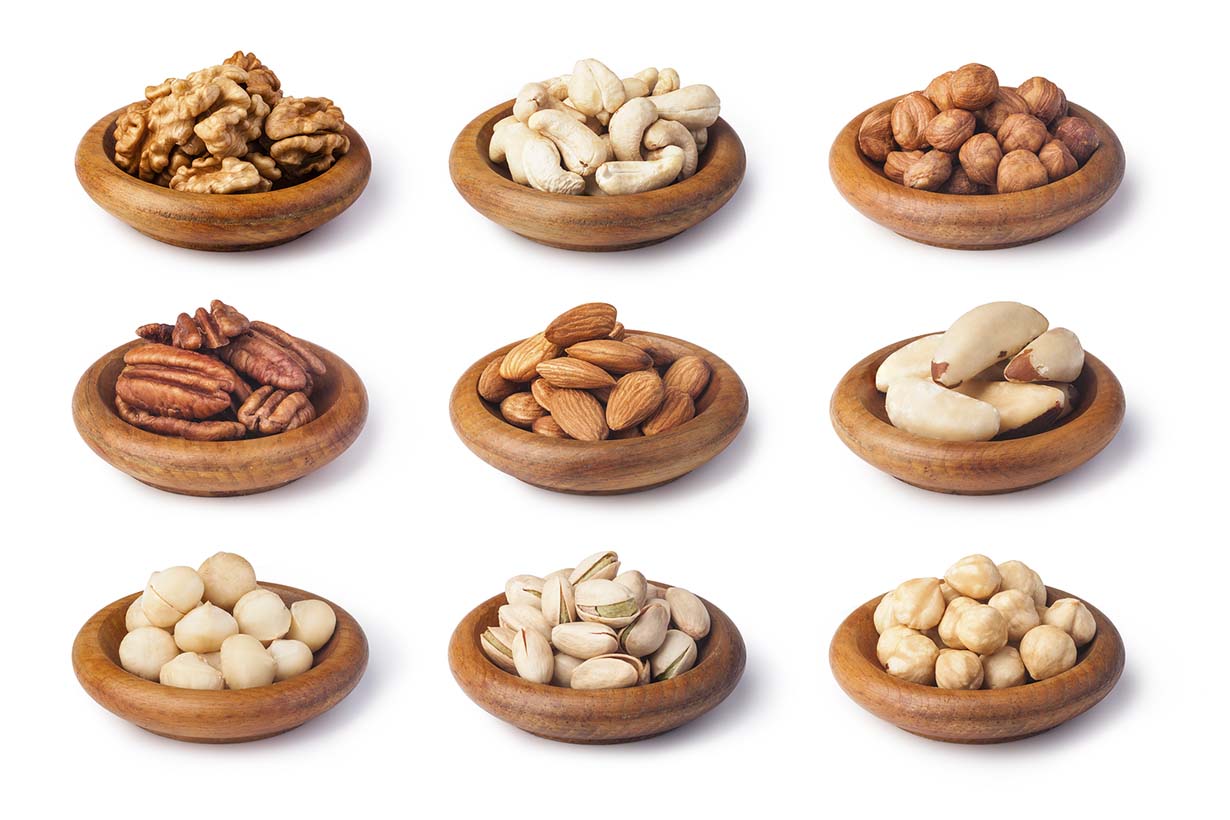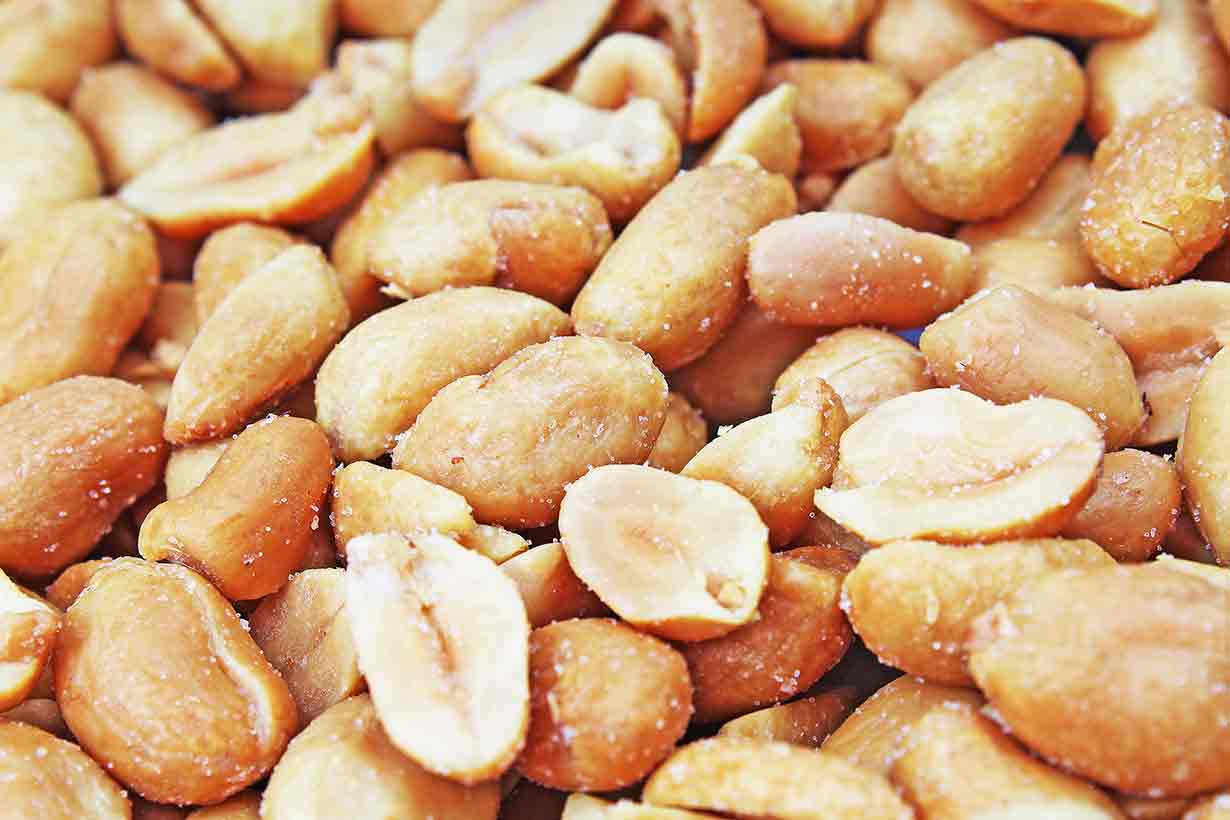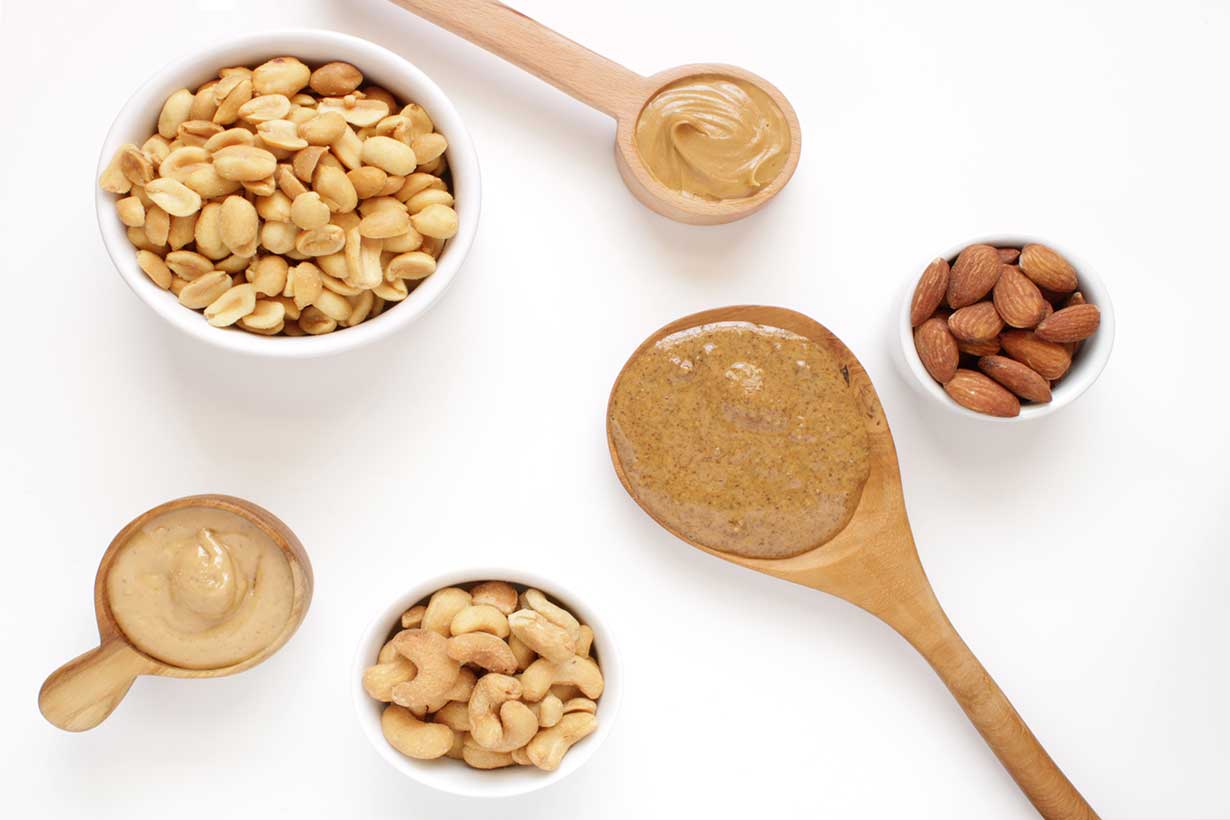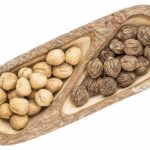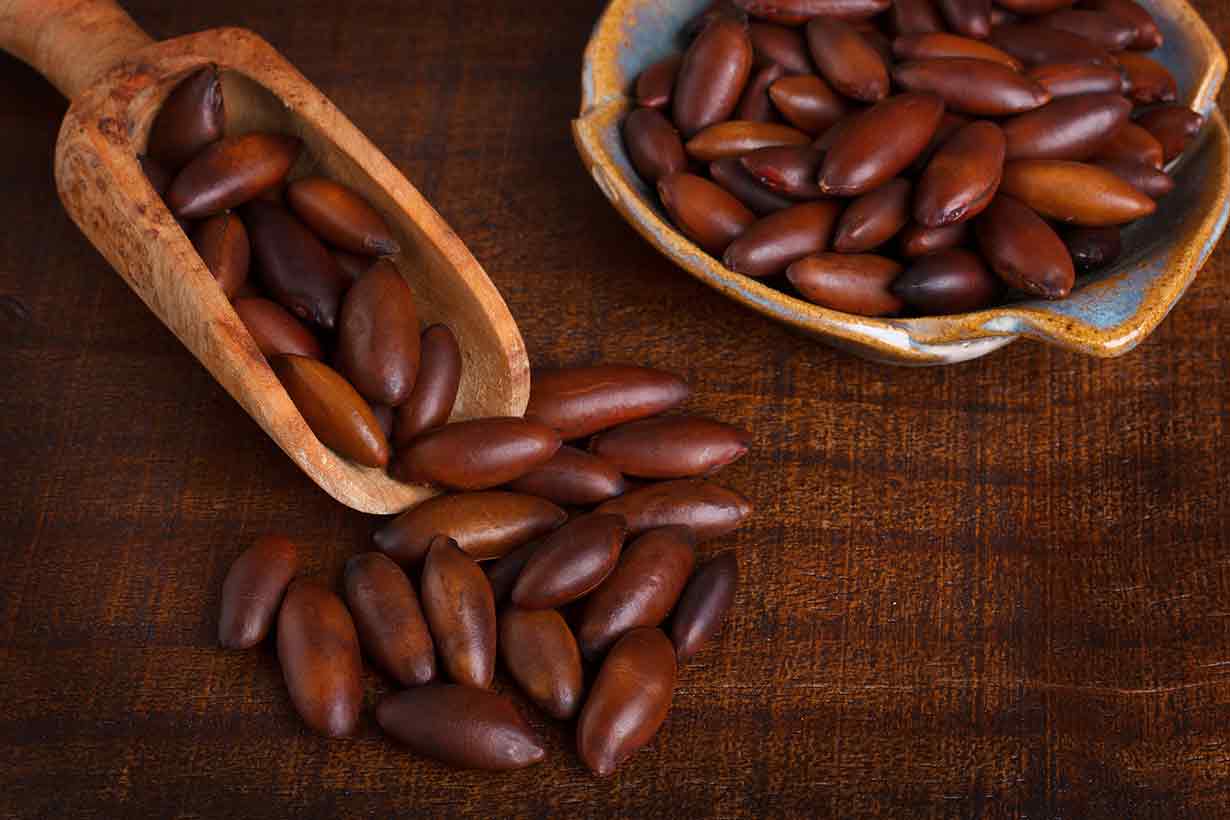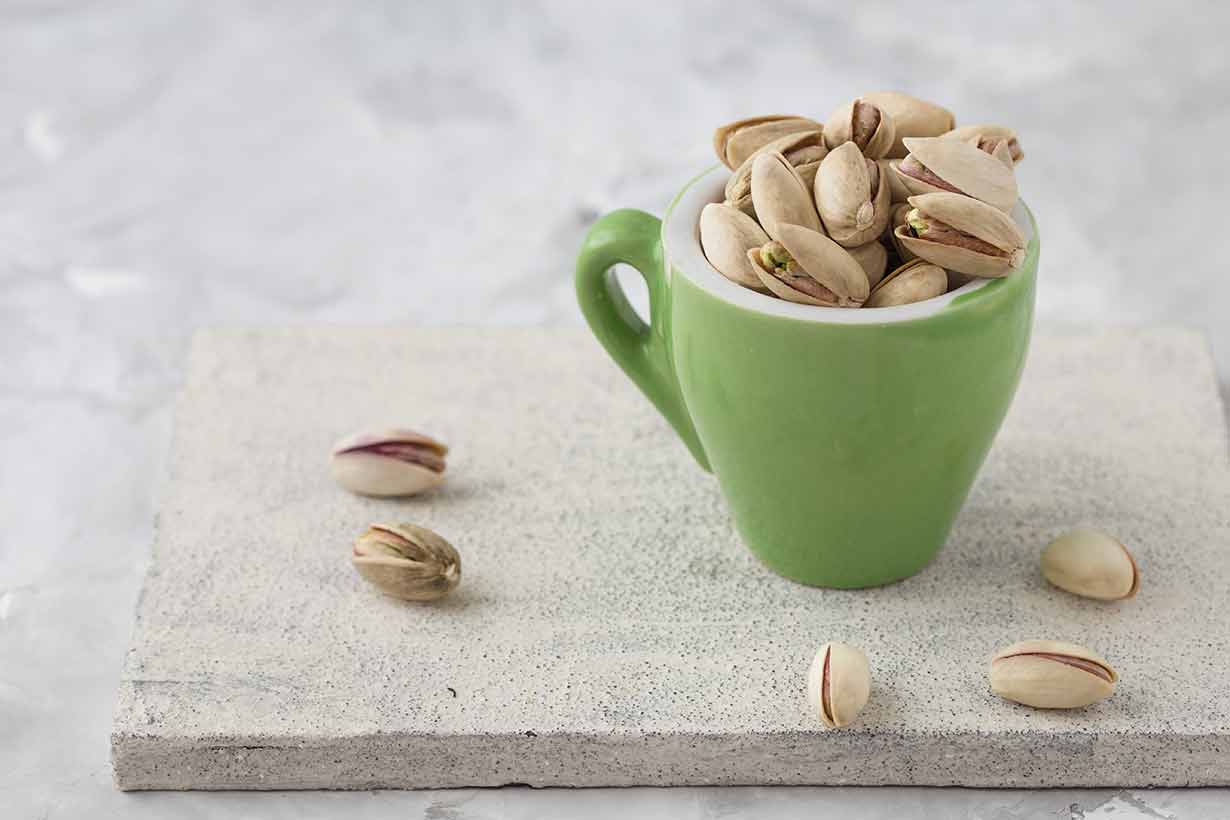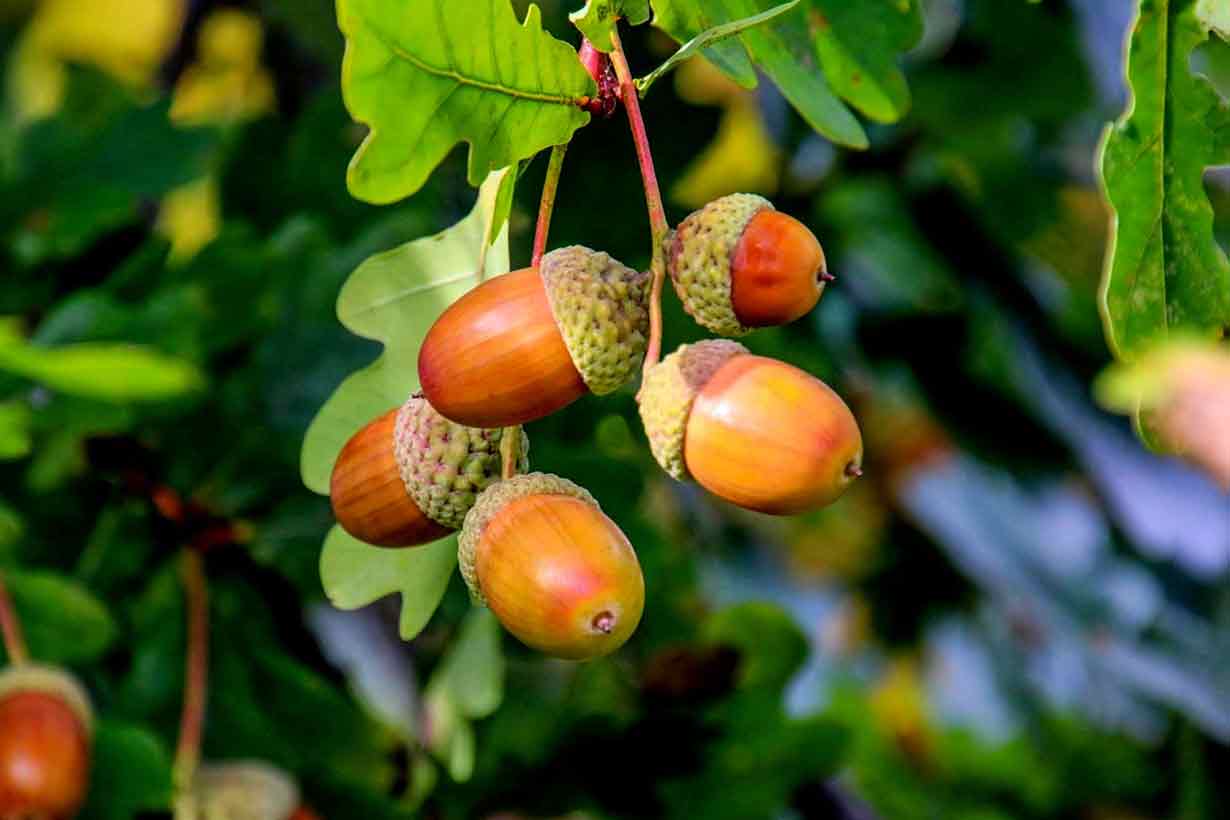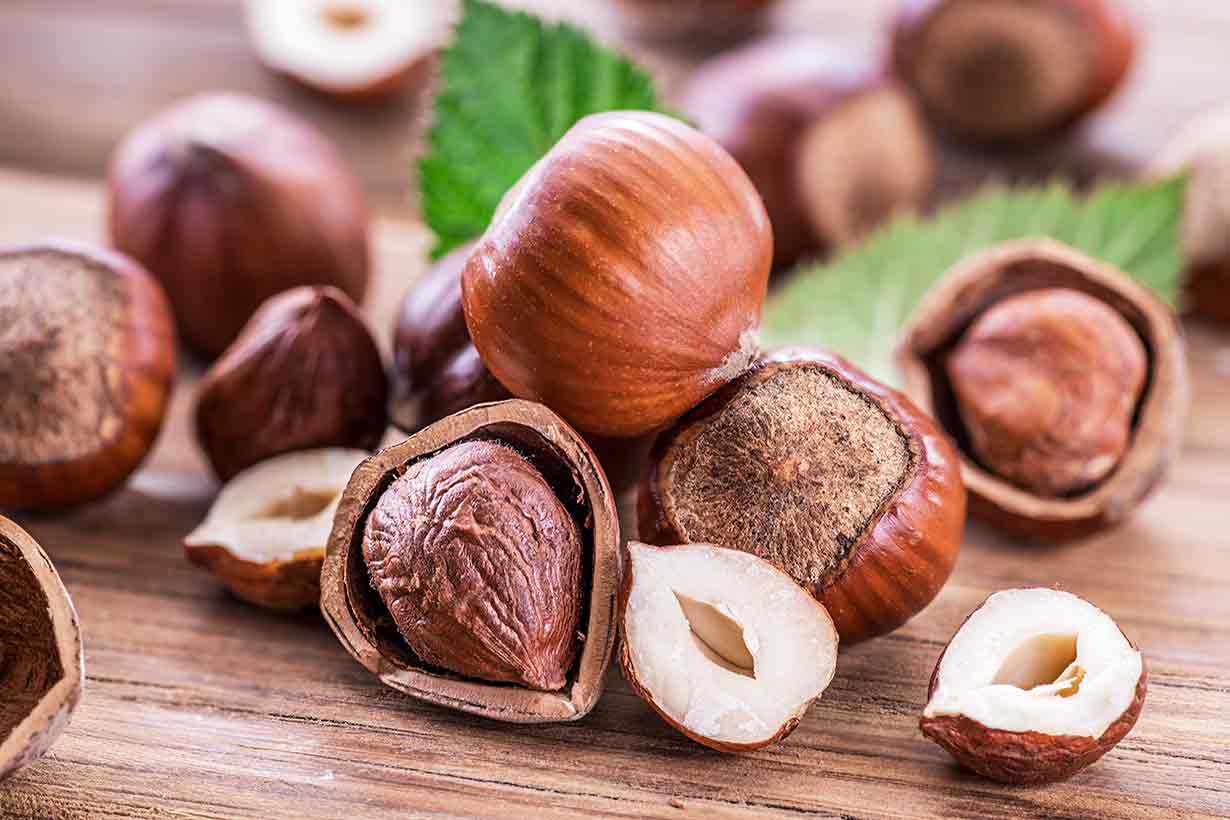Peanut butter powder is an interesting product that can be summarized by calling it a powdered version of peanut butter.
However, there are some differences between this product and either peanut butter or peanut flour.
For one thing, the product is low in calories, high in protein, and it has an interesting degree of versatility.
This article provides an in-depth summary of the nutritional values and potential benefits of peanut butter powder.
What Is Peanut Butter Powder?
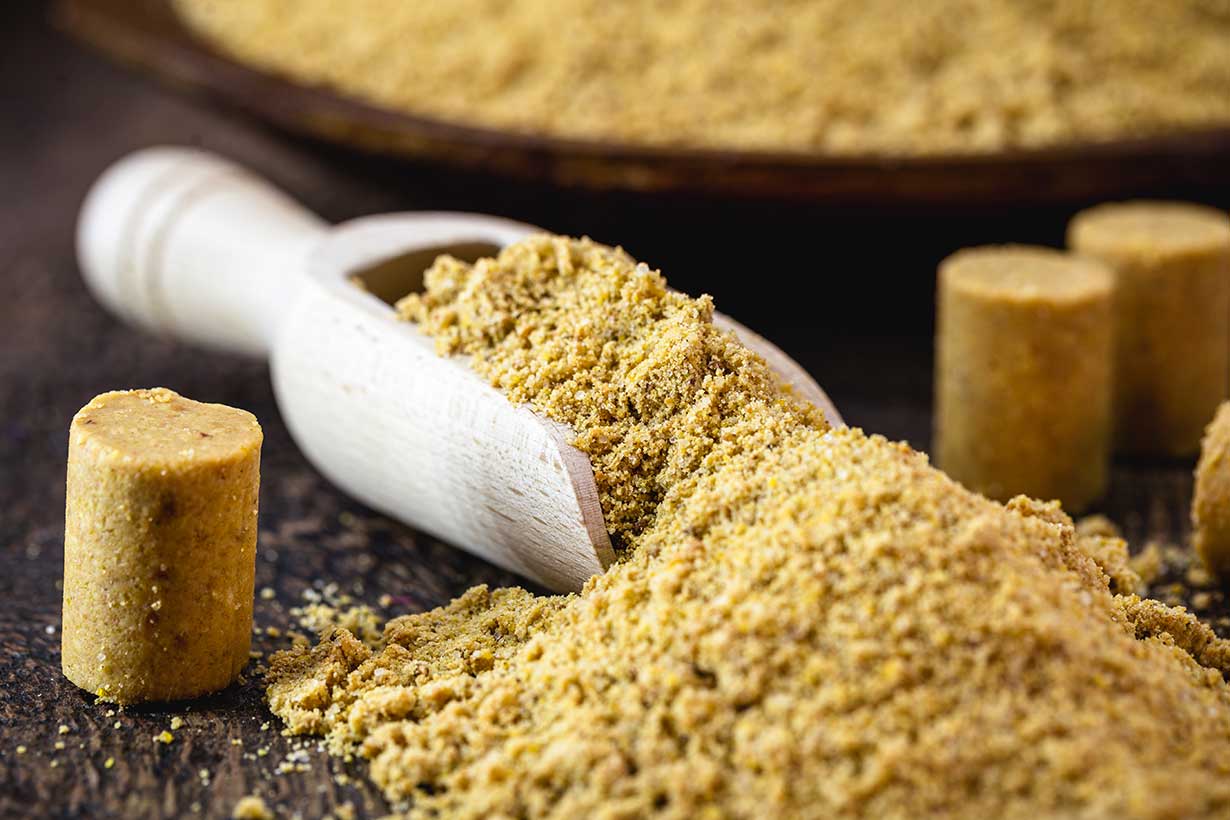
Peanut butter powder is a product made primarily from regular peanuts.
The production process to make peanut butter powder involves the following steps:
- First, peanuts are roasted to bring out more of their flavor.
- Following this, the peanuts go through a press to remove a large proportion of their fat content. This is known as a de-fatting process.
- Finally, the remaining peanut solids are ground down into a fine powder.
- Producers then add some salt to the mixture. Depending on the brand, it may also contain a small amount of sugar.
- The product is then packaged and distributed for sale.
To make instant peanut butter, we can mix the powder with a small amount of water.
However, peanut butter powder has many different uses and can be used in various recipes too.
How Does Peanut Butter Powder Differ From Peanut Flour?
Although fairly similar, there are some key differences between peanut butter powder and peanut butter.
The main differences are that peanut butter powder is very low in fat and overall calories, despite being high in protein.
In contrast, peanut flours can have various levels of fat/protein. Defatted flours will be very low in fat and high in protein, while regular options will offer moderate amounts of fat and protein (1, 2).
The last key difference is that peanut flour does not contain added salt or sugar, both of which may be used in peanut butter powder.
What Nutritional Values Does It Have?
The exact nutritional profile of peanut butter powder will depend on the specific brand and the production process they use. This is because some brands may contain more/less fat and higher/lower amounts of added salt.
That said, here are the nutritional values for peanut butter powder by PB2 foods, which was apparently the first product on the market.
The source of all nutritional values is the USDA’s FoodData Central database (3):
| Name | Amount | % Daily Value |
|---|---|---|
| Calories | 131 kcal | 6.6% |
| Carbohydrate | 10.9 g | 4.0% |
| Fiber | 2.18 g | 7.8% |
| Sugars | 4.36 g | |
| Fat | 3.27 g | 4.2% |
| Protein | 13.08 g | 26.2% |
Vitamins and Minerals
The exact nutritional data for peanut butter powder’s vitamin and mineral content has yet to be published.
However, peanut butter powder will primarily contain the same vitamin and mineral content as peanuts.
In other words, the powder will offer a good source of B vitamins, manganese, copper, magnesium, phosphorus, and zinc (4).
Benefits
Peanut butter powder has several nutritional and non-nutritional benefits.
Peanut Butter Powder Is Low In Calories
Since the powder uses defatted peanuts, it is much lower in fat than other peanut-based options.
For example, here is the calorie content of peanuts, peanut butter powder, and regular peanut butter per 100 grams:
As this shows, peanut butter powder is lower in calories than both whole peanuts and peanut butter.
Thus, it can be used as lower-calorie peanut butter for those with specific calorie/weight targets.
Rich Source of Fiber and Protein
Defatted peanuts have large quantities of fat removed. When you decrease the fat content of peanuts, the fiber and protein content simultaneously rise.
While this might negatively affect people eating nuts as a source of healthy fats, it is a benefit for those trying to increase their fiber and protein intake.
Peanut butter powder provides more than two grams of fiber and thirteen grams of protein per ounce (28-gram) serving (3).
On a per-100-gram basis, this is equivalent to eight grams of fiber and forty-six grams of protein.
Thus, even a tablespoon of peanut butter powder would offer a moderate amount of protein.
Easy To Use
One of the best things about peanut butter powder is how easy it is to use.
According to one brand, to make peanut butter from the powder requires a mixing ratio of 2 tablespoons of powder to 1.5 tablespoons of water (6).
Once again, though, it is worth noting that there are several different brands, and these instructions may vary slightly.
Other Ways To Use Peanut Butter Powder
In addition to making peanut butter, here are some other ways to use peanut butter powder.
- Add to smoothies: adding peanut butter powder to smoothies is an easy way to increase the fiber and protein content and give the drink a nutty flavor. Try adding a tablespoon to a regular drink and blending.
- Baking purposes: although the fat and salt content will be different from peanut flour, peanut butter powder will work similarly for baking. It can be used alongside a traditional flour for flavoring, or in recipes like these almond protein balls, it can be used alone.
- Protein shake: In addition to being added to regular smoothies, peanut butter powder can add a little extra protein to a protein shake and give it a nutty flavor. For example, this recipe mixes peanut butter powder with vanilla whey protein and almond milk for a protein-packed drink.
- Marinades: Mixing a tablespoon of peanut butter powder with 1 tbsp water, 1 tbsp soy sauce, garlic, ginger, and chives creates a flavorful and sticky marinade. This can be used as a topping on meat, fish, or plant proteins such as tofu.
Are There Any Downsides?
While powdered peanut butter has several benefits, it may also have some downsides depending on the context.
First of all, peanut butter powder isn’t as tasty as regular peanut butter (or other nut butter varieties).
Here are some more potential downsides.
Contains Added Sugar
Although it is only a small amount at around four grams per serving, peanut butter powder does contain added sugar. However, this is the same as a lot of the available peanut butter options.
This may not be a concern for most people, but some people wish to restrict their added sugar intake.
According to the Dietary Guidelines for Americans, added sugars should contribute no more than 10% of energy in a given diet. This amount is equal to approximately 50 grams of sugar, roughly 12 teaspoons (7).
However, other countries have stricter added sugar recommendations. For instance, in the United Kingdom, the government recommends no more than 30 grams of added sugar per day (8).
For those who are trying to limit added sugar intake strictly, a defatted or low-fat peanut flour could be an appropriate alternative option.
Decreased Vitamin E Content
Vitamin E is an essential nutrient that we can find in numerous nuts, including peanuts.
However, vitamin E is fat-soluble, which means that it is present in the fat of peanuts.
Since peanut butter powder has been stripped of most of its fat, it will only have low vitamin E levels.
That said, it is relatively easy to get vitamin E from other dietary sources such as avocados, oily fish, seeds, and olive/vegetable oils. Among the various nuts, hazelnuts are the best source of this vitamin.
Where To Buy
Most large grocery stores stock peanut butter powder, as do online supplement companies such as iHerb and Myprotein.
For those who use Amazon, they have a large range of peanut butter powder products too (disclosure: affiliate link).
Final Thoughts
Peanut butter powder is a tasty and nutritious product that is particularly rich in protein.
It is also lower in calories than regular peanuts, peanut butter, and peanut flour. For this reason, it may be a good choice for those wishing to lower their calorie intake while increasing fiber and protein.
However, it does cost slightly more than other peanut products, so these benefits (and the product’s relative newness) seem to affect the price.
There is nothing about peanut butter powder that makes it a must-buy, and plenty of other foods offer similar nutritional value. But for those who enjoy peanut products and want to get more protein for fewer calories, it might make sense to give it a try.

